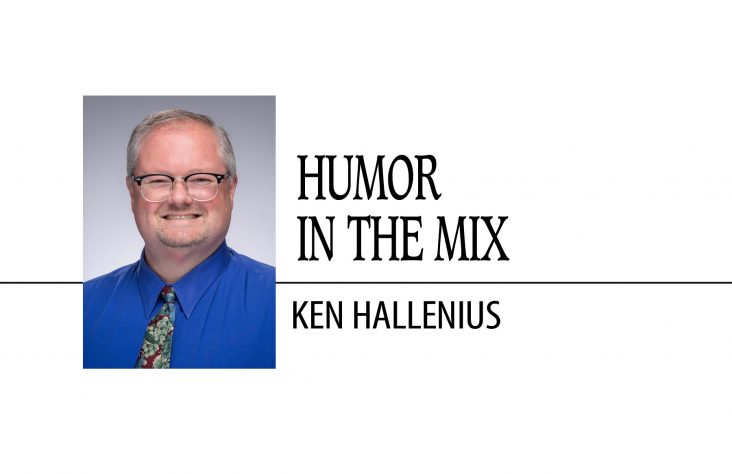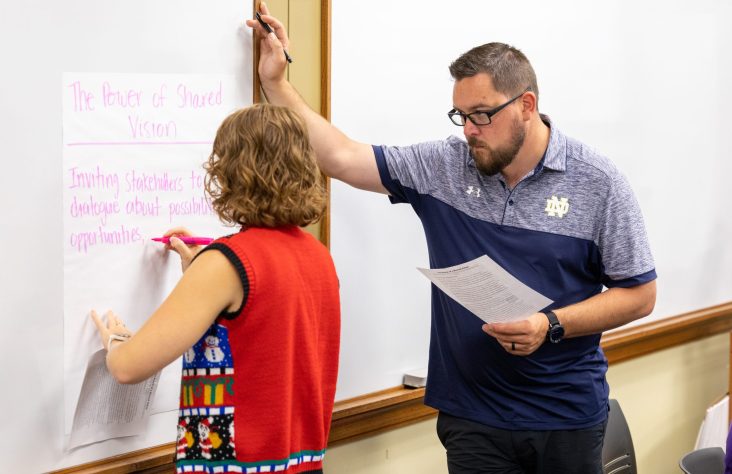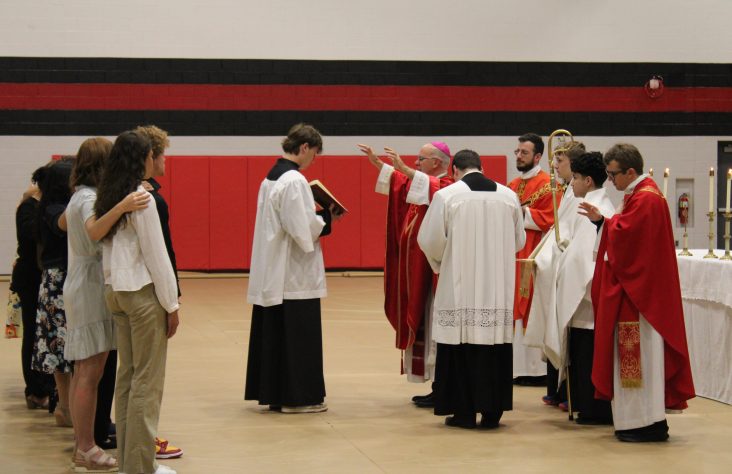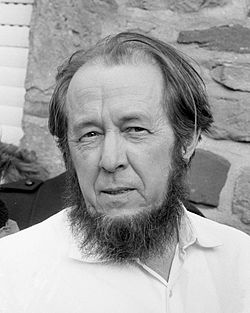November 2, 2018 // Bishop's Column: In Truth and Charity
Blessed are they who hunger and thirst for righteousness
The following is the text of the homily given by Bishop Kevin C. Rhoades on the Solemnity of All Saints, Nov. 1, at the Basilica of the Sacred Heart, University of Notre Dame, during the annual conference of the Center for Ethics and Culture:
The Entrance Antiphon for this Mass on the Solemnity of All Saints reads: “Let us all rejoice in the Lord, as we celebrate the feast day in honor of all the Saints, at whose festival the Angels rejoice and praise the Son of God.” On this feast, the Church invites us to taste the joy of the saints, to be inspired by their example as men, women and children of the Beatitudes, and to seek the intercession of these, our brothers and sisters, who help us to be faithful disciples of the Lord Jesus.
The saints lived the Beatitudes. In this homily, I’d like to focus particularly on the fourth Beatitude: “Blessed are they who hunger and thirst for righteousness, for they shall be satisfied.” At this Mass, which begins the Fall Conference of the Notre Dame Center for Ethics and Culture, I thought especially of this Beatitude in light of your theme “Higher Powers,” taken from the following quote by Alexander Solzhenitsyn: “Having refused to recognize the unchanging Higher Power above us, we have filled that space with personal imperatives, and suddenly life has become a harrowing prospect indeed.”
The saints are men and women who indeed recognized the unchanging Higher Power above us. They did not fill that space with personal imperatives. Instead, they hungered and thirsted for righteousness. They sought first the Kingdom of God and His righteousness. We rejoice today that their hunger and thirst has been satisfied as they enjoy the eternal joy and peace of heaven.
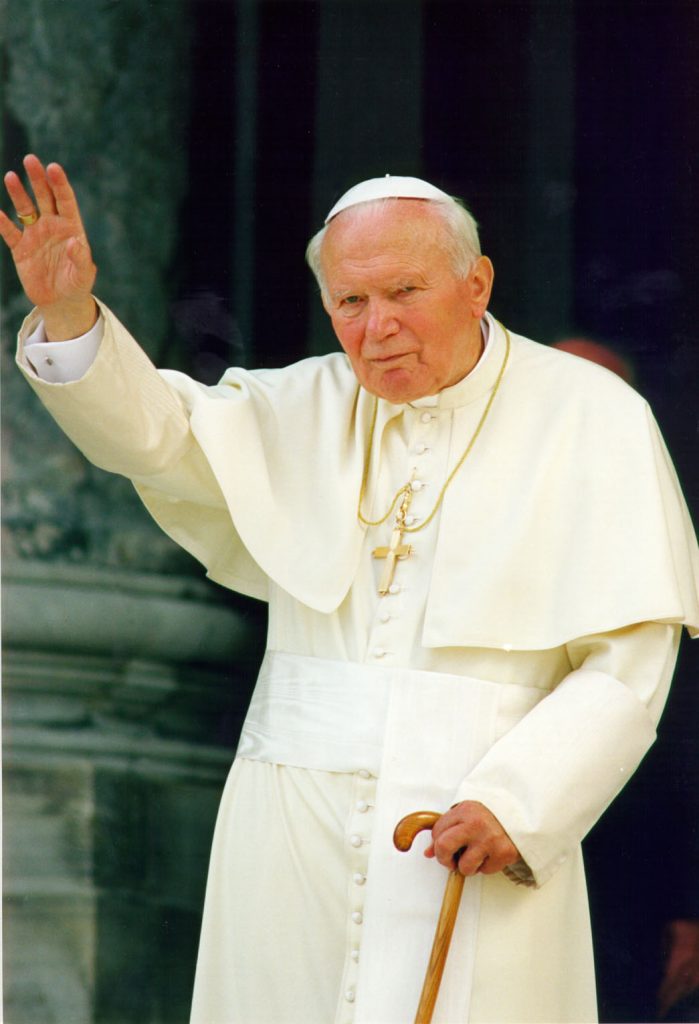
Pope John Paul II waves to pilgrims on the 20th anniversary of his pontificate Oct. 16, 1998. (CNS photo by Arturo Mari)
Recently I re-read Alexander Solzhenitsyn’s famous commencement address at Harvard 40 years ago. It was a speech that shocked the listeners because of its criticism of various aspects of Western culture, including its philosophical materialism, the same materialism that shaped communism and led to the gulags where he himself had suffered. In the Harvard speech, Solzhenitsyn located our cultural calamities in the loss of our awareness of the unchanging Higher Power above us.
What is behind the moral decline in the West, a decline that has advanced in the 40 years since Solzhenitsyn’s Harvard speech? It is the same factor that produced the horrors of communism, namely, that “men have forgotten God.” In the words of Professor Robert George, “people worship themselves, deify their own desires, fall into an idolatry of the self, because they have forgotten that there is something – indeed someone – higher. They have forgotten God. And absent faith in God, how can they – how can we – muster the courage to bear bold witness, as Solzhenitsyn himself did, to Christian values in an increasingly hostile culture and world? How can there be courage in the absence of faith? Fear is a powerful emotion – a very powerful emotion indeed. Faith alone can overcome it.”
This is the greatness of the saints. They worshipped God, not themselves. They were poor in spirit. So many of them bore bold witness to the Gospel in a hostile culture and world. Their faith overcame their fear. They did not shrink from pursuing righteousness. They opened themselves to the Holy Spirit’s gifts of fortitude and courage. In his speech at Harvard, one of the criticisms Solzhenitsyn directed at Western culture 40 years ago was the loss or decline of courage. Though he said that there were many courageous individuals, he asserted they had “no determining influence on public life.” I think we can say that the situation today is no better and is, in fact, worse.
I believe that Pope St. John Paul II, like Alexander Solzhenitsyn, was a prophet for our time. The great John Paul called us to be “signs of contradiction” to a world that has forgotten God. Weren’t the saints all “signs of contradiction?” By their words and deeds, they were salt and light in the world. They pointed the way to true freedom, freedom in Christ. Both Solzhenitsyn and John Paul II wrote and spoke much about freedom, both having experienced the tyranny of totalitarianism and its trampling upon human dignity. Both saw the similar destructive power of the irresponsible freedom in the West, freedom without restraint.
St. John Paul II warned us about freedom severed from moral truth which then becomes slavery, slavery to sin with its resulting unhappiness and misery. This happens when freedom is seen as the freedom to do whatever we want, rather than the freedom to do what we ought, which is authentic freedom. Solzhenitsyn spoke about the tilt of freedom toward evil that “stems from a humanistic and benevolent concept according to which man – the master of the world – does not bear any evil within himself, and all the defects of life are caused by misguided social systems, which must therefore be corrected.” He noted that “strangely enough, though the best social conditions have been achieved in the West, there still remains a great deal of crime.” Again, that observation is as correct today or even more evident today than 40 years ago.
In his Harvard speech, Solzhenitsyn spoke about the unbridled freedom that the press enjoys in our Western culture. To criticize the freedom of the press is pretty unheard of. Yet, Solzhenitsyn criticized a freedom that bears “no true moral responsibility for distortion or disproportion.” Here we are 40 years later, in the era of social media. Who can deny the harmful effects on our culture and the lives of so many by the lack of moral responsibility of the media? Hunger and thirst for righteousness? Hardly! Hunger and thirst for profit often prevails through salacious news, pornography or other harmful communications. Their freedom without responsibility, a freedom unrestrained by truth, has harmful effects on people and our culture.
The saints remind us that our greatest good, our true happiness, and authentic freedom do not come from wealth or fame or power or any worldly pleasure, but from the Higher Power. They teach us to be dissatisfied with our sins and to have a passionate hunger and thirst for righteousness. Today’s feast should not be just about admiring the holiness of the saints, but to hunger and thirst for their holiness in our lives. This begins with recognizing, as every saint did, that we are sinners in need of conversion, in need of God’s grace and forgiveness. As Blaise Pascal said: “There are two kinds of people: sinners, who believe they are saints, and saints, who believe they are sinners.” If we believe we are already saints, then we don’t hunger and thirst for righteousness.
We are here at this Mass not because we deserve the Eucharist, but because we need the Eucharist. We come to eat the Body and drink the Blood of the Lord, like the saints before us, to receive the Lord’s grace to live the Beatitudes. We are here because we hunger and thirst for holiness and it is the Lord who strengthens us in holiness. We need this sacrament of love, this food for our pilgrim journey, so that one day our hunger and thirst will be satisfied in the eternal joy and peace of heaven. May all the saints intercede for us on our journey!
The best news. Delivered to your inbox.
Subscribe to our mailing list today.


